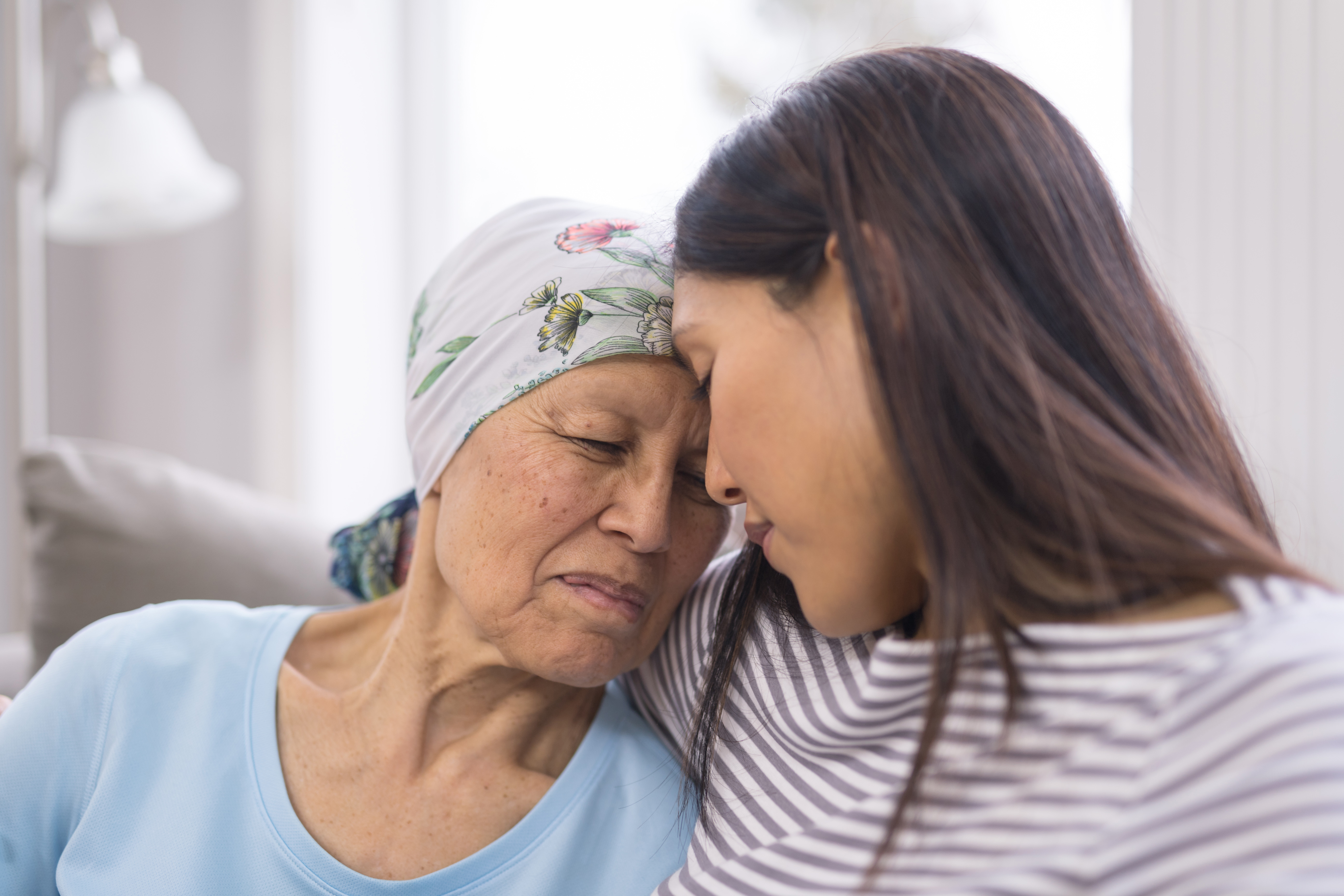
Wednesday, March 6, 2024
Called to Care envisions every Californian facing a serious, life-limiting illness will have access to compassionate, supportive care through the end of life. We especially want to see care and resources reach communities that have too often been left behind, including communities of color, Indigenous tribes and rural communities.
Overview: Care Through the End of Life in California
In California, only about 55 percent of hospitals maintain palliative care programs. Fewer Californians compared to the rest of the nation receive the benefits of hospice care. Members of underserved groups, including Black and Latino communities, access hospice at lower rates than white Californians.
Our state needs to expand the reach of palliative care to ensure every Californian experiences quality of life, particularly in one’s final days. This is crucial to address the health care needs of our state’s aging population; by 2030, a projected 20 percent of the state’s population will be 65 and older.
The Role of Safety-Net Providers
In many communities across California, safety-net hospitals and health-care providers are tackling the biggest health and social challenges, including care through the end of life. These organizations are ideally positioned to serve as a hub for coordinating access to health and social services to communities, especially for those who would otherwise lack access.
Often these providers are Catholic care sites that have already served and effectively partnered in their communities for generations. Catholic-affiliated hospitals play a central role in providing palliative and hospice care, including:
- Promoting Advance Care Planning. Working with local parishes to encourage and support individuals in making and communicating their decisions about care through the end of life to their family and friends through advance directives and physician orders for life sustaining treatment (POLST); and reducing barriers to advance care planning.
- Providing Compassionate Care through the End of Life. Operating collaborative and interdisciplinary palliative care programs that support patients facing life-limiting illness by aligning patients’ values and preferences with medically indicated treatment; improving communication; enhancing patients’ quality of life; and minimizing pain, discomfort and emotional, mental and spiritual distresses, while also addressing safety, mobility and equipment needs; and engaging with families to support them in caring for their loved ones, and provide grief counseling and bereavement services.
- Partnering with Communities. Working with organizations to educate communities about palliative care, hospice and care through the end of life available at hospitals; and partnering to provide social, mental and spiritual support to those with serious illness.
Nearly 100 percent of Catholic-affiliated hospitals in California operate palliative care programs, compared to 55 percent of all hospitals in the state.
Bringing Together Health, Emotional and Spiritual Care
No one should have to face the end of life alone or in untreated pain. Catholic health systems and hospitals, together with community partners, are essential safety-net providers in our state, ensuring that everyone can access the care they need, regardless of coverage or ability to pay. Care through the end of life is no exception.
Hospice and palliative care offered by Catholic-affiliated providers bring together medical treatments, counseling and spiritual guidance. With care for pain, patients can focus on being with friends and family, making end-of-life decisions and even finding joy in everyday living. Catholic-affiliated hospice programs also offer grief counseling and bereavement services to family and friends.
Providing Care and Comfort through the End of Life
With a strong foundation in faith and spirituality, compassionate care for those living with serious illness is at the heart of Catholic health care’s mission. Examples of special palliative and care through the end of life programs include:
Originating from the call to transform the way in which society cares for people living with serious illness and supports family caregivers, the Caring for the Whole Person Initiative (CWPI) is a collaborative model of Catholic health organizations and dioceses/parishes throughout the state — bridging medicine and ministry by educating parish ministers to provide resources and support to those in need. Over the course of the past two years, seven of California’s 12 dioceses have hosted a CWPI training.
Providence Institute for Human Caring, The Center for Advance Care Planning and Advocacy
Conversations about serious illness should be a part of everyday life. Catholic-affiliated hospitals are committed to promoting advance care planning, focused on empowering individuals to make their own decisions about the care they want if they were unable to speak for themselves. It’s about loved ones and caregivers honoring a person’s wishes based on the individual’s values, goals and preferences through the end of life. The Institute for Human Caring offers patient and provider education, consults health care organizations how to optimize palliative care and develops technological innovations to deliver more highly personalized care.
Trained volunteers within Providence and Dignity Health provide care and comfort to those facing death who have no one else to be with them in their final hours or days of life, or when their family members need respite. Volunteers honor the dignity of each dying individual and provide reassurance to families who cannot be present with their loved one around the clock.
In the Sacramento area at Dignity Health, through Mercy Hospice’s animal-assisted therapy program Source of Unconditional Love (SOUL), therapy dogs bring comfort and respite to dying patients and their families. Petting an animal can lower blood pressure, help people relax and even bring moments of joy. SOUL is staffed by volunteers, and there is no cost to patients for the program.
“Our staff is highly trained to conduct difficult and challenging conversations with seriously ill patients and families to better understand what gives meaning to life and what matters most.”
Robert Del Junco, M.D.
Providence St. Joseph Heritage Health